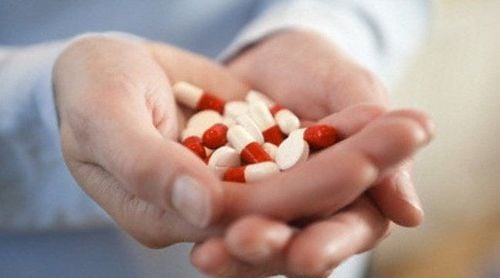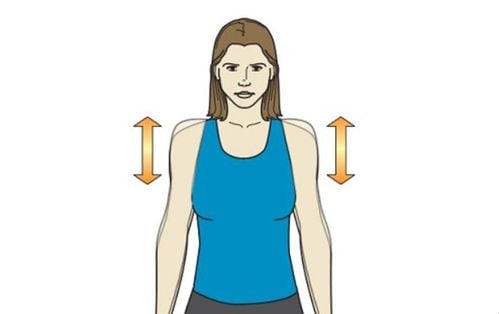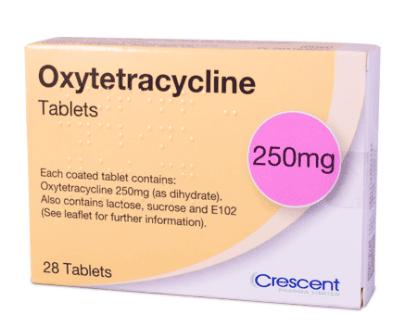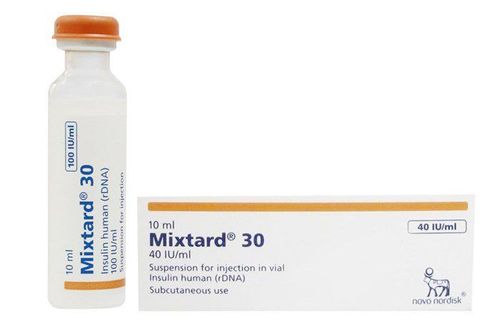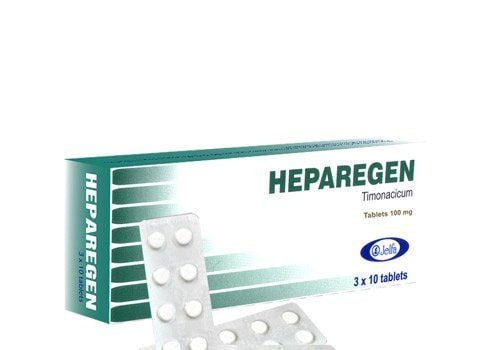1. What is leg edema in the elderly?
Leg edema is a condition in which the legs are swollen to a larger size than normal, occurring due to the accumulation of fluid in the tissues in the ankles and feet. This accumulation is caused by leaking fluid from the small blood vessels or capillaries in the legs. The kidney reacts to retain more sodium and water to compensate for fluid escaping.
As a result, water is transported increasingly in the body, which causes the leakage from the capillaries more severe.
Elderly people with leg edema often feel heavy and tired, especially when moving. In addition, the lower limbs, ankles, or even the entire leg will be deformed. Leg edema can appear in one leg or both legs depending on the cause of the disease. If not treated promptly, this condition can seriously affect blood circulation, causing skin ulcers.
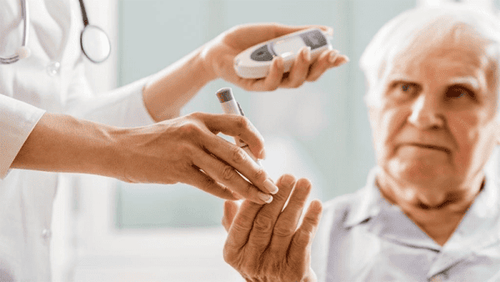
2. Causes of leg edema in the elderly
Leg edema is seen more commonly in the elderly than in other age groups. This is a result of health conditions due to aging.
2.1. Cardiovascular problems increase the risk of leg edema in the elderly
All cardiovascular issues increase blood pressure in the capillaries and veins, they cause the edema of the surrounding tissues. The majority of elderly with heart failure have leg edema, which hinders blood and fluid circulation in the body.
2.2. Diabetes in the elderly
The longer you have diabetes, the more complications your body will experience. Diabetes is a risk factor for many serious health conditions in the elderly, including leg edema.
Leg edema due to diabetes in the elderly is due to the weakening of the veins in the legs, which makes them not to pump blood back to the heart normally. This condition causes blood and fluid stagnation in extremities, including the legs.
2.3. Cirrhosis also causes leg edema
The elderly with cirrhosis have various signs and symptoms due to changes in liver function. In particular, changes in fluid-regulating hormones and other chemicals raise blood pressure in both the abdomen and legs, causing ascites and leg edema.
2.4. Kidney issues are related to leg edema in the elderly
Another cause of leg edema in the elderly is kidney issues. Due to age, the elderly’s kidneys gradually decline in their function, which is filtering and excreting waste from the body. Consequently, the improper reabsorption of several substances like water, amino acids, and glucose causes leg edema.
In addition, other causes of leg edema in the elderly include:
- Poor nutrition, high salt or high starch diet
- Trauma.
- Thrombophlebitis or venous valve failure in the leg.
- Vitamin B1 deficiency due to diet or disorders in nutrient absorption and metabolism.
- Medications are used to treat certain diseases.
- Long-term sitting and standing: The elderly have a sedentary lifestyle which increases their risk of leg edema compared to young people.
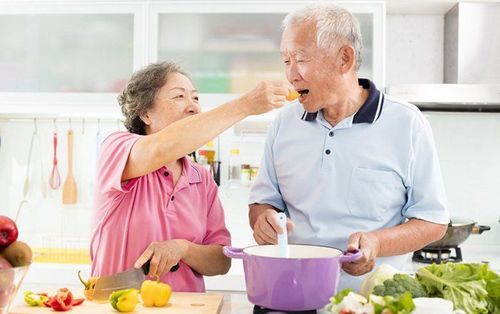
3. How to treat leg edema in the elderly?
Leg edema in the elderly should be treated early when the mildest signs appear to improve the symptom quickly and minimize its complications.
Along with medication, the following activities can improve the symptoms of leg edema in the elderly:
- A healthy and proper diet: Reduce salt, increase healthy foods such as vegetables and fruits, as well as limit meat in the daily diet.
- Drink enough water: Drink at least 2 liters of water per day.
- Engage in a suitable exercise regimen, and avoid a sedentary lifestyle. Movements enhance the muscles in the edematous area to pump excess fluid back to the heart. In general, the elderly are recommended to walk for about 1 - 2 hours a day.
- Change posture frequently instead of long-term sitting or standing as this worsens the condition.
- Massage induces pressure on the swollen area, which promotes the movement and elimination of excess fluid in interstitial tissues.
Though leg swelling is a common problem in the elderly, it should be taken care of seriously. To minimize potential complications, once the first signs of swollen legs are detected, visit a doctor for evaluation and treatment for this problem.
To arrange an appointment, please call HOTLINE or make your reservation directly HERE. You may also download the MyVinmec app to schedule appointments faster and manage your reservations more conveniently.
